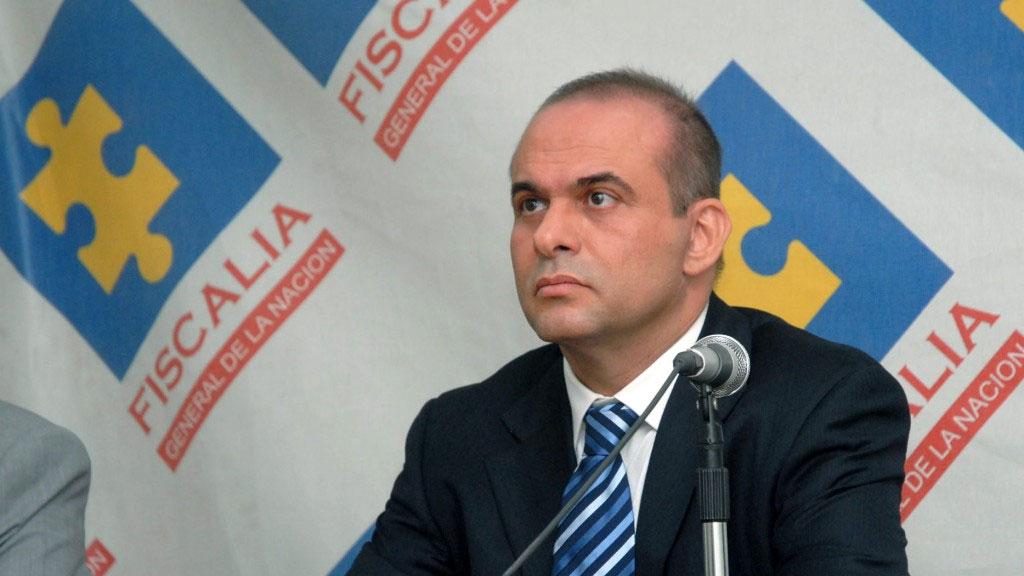Salvatore Mancuso is a notorious former Colombian paramilitary leader who is serving 16 years in a US prison for drug trafficking.
Early life
Mancuso, also know as “El Mono Mancuso”, “Santander Lozada” or “Triple Cero”, was born in 1964 in Monteria, the capital of Cordoba, in northern Colombia. His father is an Italian immigrant from Sapri and his mother is Colombian.
In his early days, Mancuso studied engineering and farming administration in Bogota, but never completed his education.
Mancuso’s career in paramilitary groups began as a landowner frustrated with constant harassment from the guerrillas and the state’s failure to combat the crimes. Mancuso reportedly decided to take matters into his own hands after witnessing his friends and neighbors being kidnapped and killed without consequences.
In 1995, he joined the Self-Defense Forces of Uraba and Cordoba (ACCU) with a clear purpose: to fight the guerrilla groups who had tormented his community for years.
Rise in paramilitary ranks

Carlos Castaño
Upon the official formation of the United Self-Defense Forces of Colombia (AUC) in 1997, Mancuso became one of the leading figures of the movement, a close ally of founder Carlos Castaño and ultimately the group’s supreme commander.
According to his own testimony, after joining the AUC, Mancuso studied guerrilla warfare in the Vietnam War, took English classes at the University of Pittsburgh and learned to fly helicopters thanks to the teachings of a retired Army captain.
An audacious helicopter rescue mission in 2000 sparked his rapid ascent through the paramilitary ranks.
On New Year’s Eve 2000, FARC guerrillas outnumbered a weakened AUC unit in northern Colombia. As hopes for successful last-ditch defense faded, Mancuso appeared unexpectedly in a Black Hawk helicopter, shooting at the enemy. Among the retrieved paramilitaries was Carlos Castaño, the number one of the paramilitary organization at the time.
“You saved my life, brother”, the leader allegedly told Mancuso afterwards.
Having assumed a top position within the AUC’s ranks, Mancuso was asked to lead paramilitary offensive that extended the AUC´s influence from the northwest of Colombia all the way to the border with Venezuela between 1998 and 1999.
Mancuso was also a ruthless and effective executioner. “El Mono” was in command of at least 8 paramilitary groups that perpetrated mass killings across the country: in Mapiripan, in El Aro, La Gabarra, El Salado and many other rural areas. Up to 837 people, including a large amount of innocent civilians, allegedly died at his direct orders.
Financing his military activity with extensive drug-trafficking operations, Mancuso has been accused of exporting more than 17 tons of cocaine to the United States and Europe since 1997. He was also linked to drug trade with the Italian Ndrangheta mafia group.
The death of Carlos Castaño

Mancuso speaks before Congress
The friendship between Mancuso and Castaño was short lived. AUC founder Castaño was kidnapped and killed in April 2004 in circumstances that remain unclear.
The disappearance and death of Castaño paved way for Mancuso to take charge of the AUC.
Six lower rank paramilitary soldiers confessed to the killing of the AUC co-founder and five of his bodyguards in August 2006. They claimed they acted upon orders from Castaño’s brother Vicente, as well as from Mancuso and Jorge 40, confirming the hypothesis that Carlos’ death was a result of internal power struggles within the organization.
Castaño’s remains were recovered in a shallow grave in September 2006 and identified through DNA testing by government authorities.
Demobilization
With Mancuso at the helm, the AUC agreed to demobilize which it officially did between 2003 and 2006.
A 2005 law allowed the majority of AUC fighters to reintegrate and enjoy amnesty for committed crimes, while leaders would receive sentences no longer than eight years if they held their end of the bargain and helped clarify the tens of thousands of human rights violations and compensate the victims.
The supreme leader of the paramilitaries was even invited to Congress in 2004 to speak about the demobilization of the AUC.
Mancuso was the first chief of the AUC to confess to crimes. As part of a reduced sentence plea in 2006 he admitted to 87 criminal acts and causing the deaths of more than 336 victims. Together with the rest of the high command of the AUC, he was placed in the maximum security prison in Itagui, bordering Medellin.
Extradition
However, as Mancuso and other paramilitary commanders began revealing their extensive ties to the military and national politicians, the administration of former President Alvaro Uribe extradited Mancuso and other 12 paramilitary leaders to the United States on drug charges in 2008.
According to Mancuso, Uribe was himself involved in “parapolitics” and extradited the former leader to prevent him from revealing more information.
After being transferred to the US, Mancuso continued to testify as part of the Justice and Peace process.
Partially due to his denunciations of the state and army officials, a Bogota court sentenced him to a greatly reduced sentence of eight years in prison.
If authorities establish that Mancuso does not honor the agreement with the prosecution, his legal benefits will be lifted and he will have to spend 40 years behind bars after having carried out his sentence in the US.
A US Federal Court found him guilty and sentenced him to almost 16 years in prison in 2015, meaning that after his US sentence, Mancuso will have to serve additional time in Colombia.




